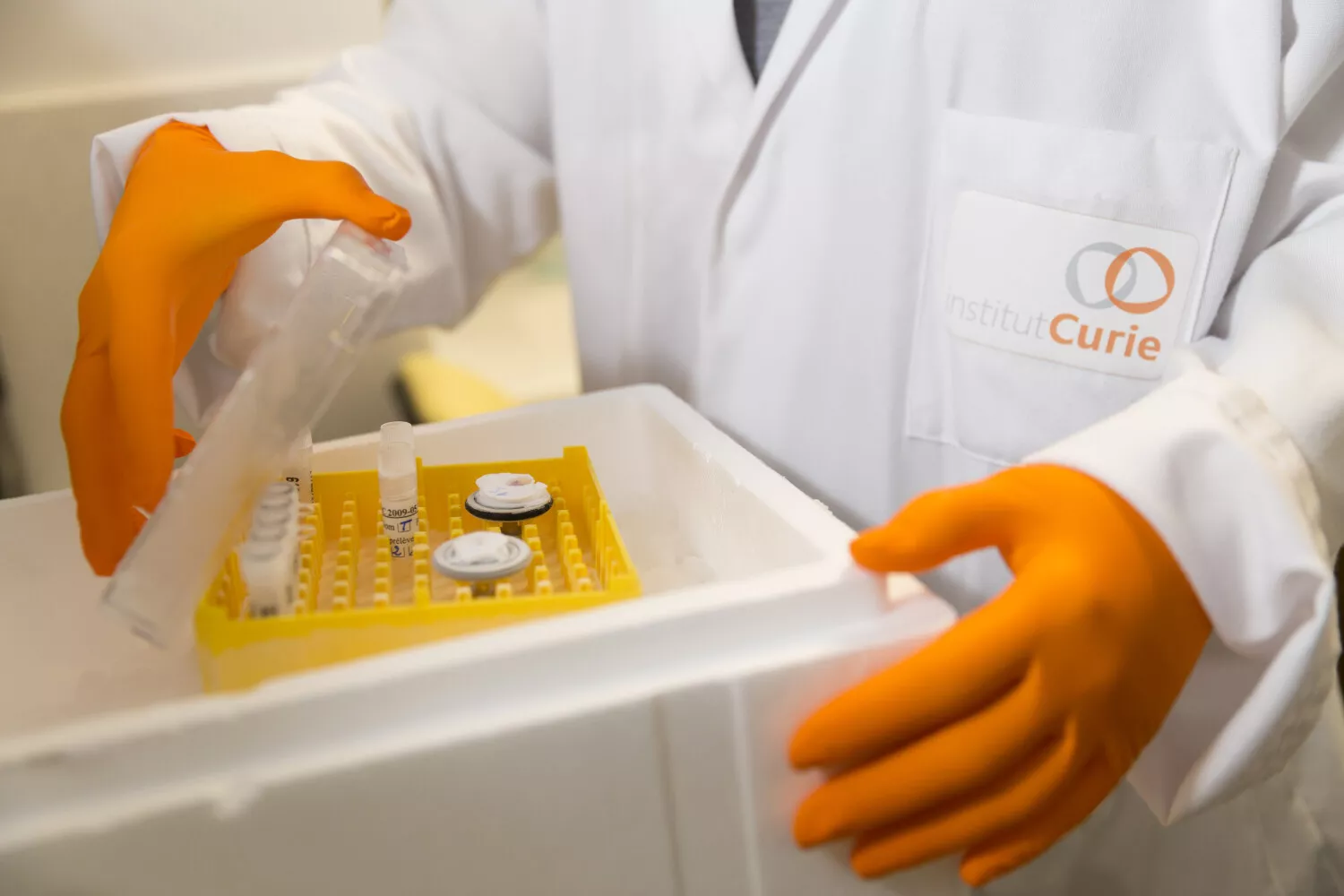Institut Curie is France’s leading cancer center in terms of number of patients treated, and Europe’s leading treatment center for breast cancer. The institute has also enjoyed Comprehensive Cancer Center status since 2018, a label awarded by the OECI (Organization of European Cancer Institutes).
A foundation with public utility status, Institut Curie is authorized to accept donations and bequests, and thanks to the support shown by over 230,000 donors, is able to accelerate the pace of new discoveries, thereby improving cancer treatment and quality of life for patients.
In 2023, Institut Curie enjoyed a budget of €506.9M in resources, of which €76.2M was raised thanks to the public’s generosity.
The Research Center
The Institut Curie Research Center aims to understand the complex mechanisms that make living organisms function.
The basic research it houses facilitates effective translational research, itself the basis of an inestimable source of innovation that answers the scientific, technological and medical challenges posed by cancer.
The scientific advances facilitated by translational research can affect anything from the normal or cancerous cell to the whole organism, opening the way to new knowledge that in turn provides the innovative therapeutic solutions that are essential to the fight against cancer.
It fosters an environment of interdisciplinarity, mutual inspiration, and clinician collaboration while opening up partnership opportunities, both in France and worldwide.
- 13 mixed research units affiliated to the CNRS and/or Inserm and/or universities, and representing 86 research teams.
- 1,242 members of staff from 78 different countries (including 302 PhD students and 184 post-doctoral students).
- 19 technological platforms
- In 2023, Institut Curie’s teams authored 385 scientific publications peer-reviewed.
As France’s leading cancer research center, the researchers here focus on six overarching research themes :
- Chemical Biology and Innovative Therapeutics
- Tumor microenvironment, Immunology, Immune & Cell Therapies
- Computational biology and Systems Medicine
- Developmental Biology and Pediatric Oncology
- Genome Biology
- Cell Biology and Physics of Living Systems
The Hospital Group
The Institut Curie Hospital Group treats a wide variety of cancers: breast cancer, pediatric cancer, cancer of the respiratory system, gynecological, digestive, and cancers of the male reproductive system, blood and bone marrow, ENT, skin, urinary tract, thyroid, central nervous system, eye tumors and sarcomas.
It takes an always-interdisciplinary approach to treatment, lending the best skills and the most efficient techniques to holistic, continuous care for all patients, at all stages of the disease, with a constant concern for their quality of life.
Because of its strengths in clinical research, Institut Curie promotes a large number of clinical trials and includes its patients in those trials whenever possible.
Since it is globally renowned for its expertise, Institut Curie hosts several hundred international patients annually, and strives to meet the needs of those patients who do not have access to the treatments they need in their country.
- 2,434 members of staff, including 412 doctors, 424 State-certified nurses, 102 care assistants, 198 student nurses and 63 interns (2023 figures).
- In 2023, Institut Curie admitted 11,668 new patients and 411 international patients with all types of cancer, including the rarest.
In June 2022, France’s Health Authority (HAS) certified the Hospital Group and awarded it a commendation for “high quality care” (the highest possible rank) for a period of four years.
| Teaching and training future doctors, health professionals, and researchers is an Institut Curie priority. Every year, around 500 PhD students, residents, Master’s students, and trainee nurses come from all five continents to take courses at Institut Curie. By participating in the outreach and dissemination of knowledge, Institut Curie contributes to improving the patient care all over the world and to advancing our understanding of living organisms. |
Putting innovation to work for the benefit of cancer patients is a major focal point — both in clinical research (197 clinical studies and 150 therapeutic trials in 2023) and in transferring findings over to companies via the Technology Transfer Office’s ambitious policy.
Our 239,000 donors and their generous donations lie at the heart of the Hospital Group and Research Center. By backing innovation in science and medicine, they help further research and improve patient care. Thanks to their generosity, countless treatment, research and knowledge-sharing projects have been brought to life. In 2023, Institut Curie received €40.6M in donations and patronage, as well as €35.6M in bequests.
Through its publications, its efforts to protect its heritage, its cultural offering and the many different events it puts on and shares in its rooms and online, the Musée Curie works to safeguard and pass down the Curie family’s scientific heritage and the history of radioactivity.
Our governance
Institut Curie’s governance includes a Supervisory Board, a Scientific Advisory Board, an Executive Board, and three entities, the Hospital Group, the Research Center and Head Office.
For more information: Our governance
